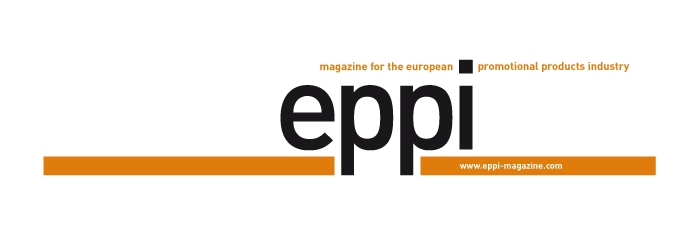In December 2021, the Dutch Plato Group purchased the also Dutch-based import company, the Interall Group, a specialist for products with a sustainable focus. The Plato Group also owns the supplier division Clipper, the promotional products distributor IGO and the promotional products agency Compacon, which concentrates on large, multinational groups. Ton Löbker, CEO of the Plato Group, about the reasons behind the acquisition and the sustainability strategy of the group, the profits of which to a large extent flow into the nonprofit making Plato Group Foundation.
Mr. Löbker, how did the decision to take over the Interall Group come about?
Ton Löbker: Of course, we have known the company and its owners for a long time already. Over the past years, Interall has experienced rapid and dynamic growth in the course of a realignment including a more sustainable product portfolio, the WoW Sustainable Collection. This strong growth presented Interall with several challenges and the question as to how things should continue. We, on the other hand, had the feeling that our supplier brand, Clipper, could do with a profile boost. We wanted to bring a striking product range out onto the market. At the same time, we wanted to take on a more sustainable approach, because it is extremely important that the entire industry moves in that direction. So, buying Interall fitted in very well with our plans to take a significant step in improving the sustainability of our product range.
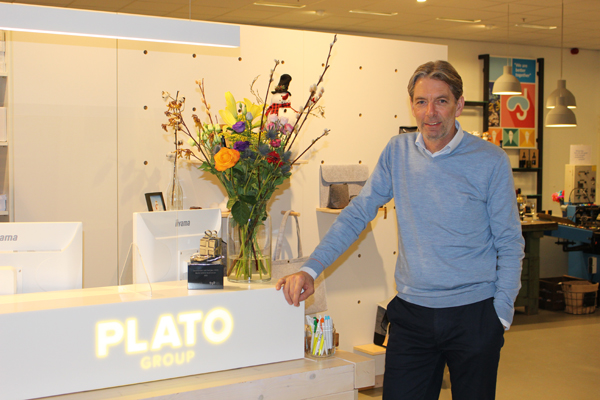
Ton Löbker
What was Interall’s annual turnover at the time of the acquisition?
Ton Löbker: Over three million Euros with a very good forecast and a strong growth rate that is extremely attractive for us – especially with a view to our own financial and staff-related opportunities and our network.
What is the WoW Sustainable Gifts Collection?
Ton Löbker: A versatile and constantly expanding assortment of products made from sustainable, recycled or recyclable materials – from socks made of discarded fishing nets, to notebooks made from coffee waste, through to textiles produced out of unused or recycled fabrics. Around 60% to 70% of the products are manufactured in Europe. Furthermore, Interall maintains a partnership with Plastic Bank: the initiative enables garbage collectors worldwide to sell plastic waste at fair prices. The raw materials collected in this way are in turn processed into new products. Further partnerships are in the pipeline. Hence, the collection aims to supply genuinely sustainable alternatives to conventional products as opposed to offers that can only be described as greenwashing. Of course, it is also important here that the product offer satisfies the needs and price structure of our industry. That is why the collection comprises of items that tell a story, as well as “more simple” products, which nevertheless do display sustainable qualities. Interall’s strategic goal is a completely sustainable product range.
Via which channels are the products to be sold in future?
Ton Löbker: Both via the existing sales channels of Interall as well as via those of Clipper. There are of course overlaps as far as the customers are concerned. But we won’t tell anyone, who they have to buy from, the customers can select their own contact partners. Clipper will primarily focus on the standard products, whereas Interall will also provide more complex, customer-specific solutions and special designs. Interall will remain to be an autonomous company with its own sales team and in this capacity will continue to further develop and expand the WoW collection.
What about the product procurement? Will you merge the corresponding teams of Interall and Clipper?
Ton Löbker: Yes, in future the teams will work together, whereby one has to differentiate between buying and sourcing: In the case of sustainable products sourcing implicates a lot of product, material and market research. It is not “just” about finding good products – the production conditions, the material, the ecological and social footprints also have to be right. We will bundle our competences and capacities here.
How are you going to roll out the newcomer of your group and how will you position it on the market? Will you initially limit it down to the Netherlands or will you focus on the international markets from the very beginning?
Ton Löbker: The latter: Clipper operates in 13 European markets and because the new, sustainable products are being integrated into the Clipper product range as a separate line, they will also be available in all markets with immediate effect – whether in the D-A-CH region, in the United Kingdom, in Scandinavia or in South Europe.
There are also two further companies within the Plato group, which sell to promotional products users: namely IGO and Compacon. The WoW products are of course also highly interesting for both of these brands. How will the collection be sold to industry customers?
Ton Löbker: Exactly the same way as the Clipper portfolio hitherto: IGO and Compacon buy the products from Clipper and sell them to the end users – using a transparent price model, which is oriented on comparable market price structures and margins. IGO and Compacon are therefore customers of Clipper. Over the past few years, we have invested a lot of effort into separating our individual brands. We don’t want them to be too integrated into the group, instead they have to be able to act in a strategic manner independently from each other
The Plato Group
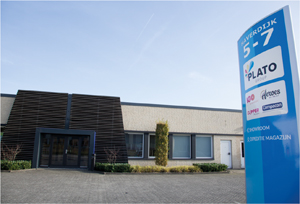 The group that is based in Helmond, the Netherlands unites several independent companies and sales channels under its roof: The importer and supplier, Clipper, exclusively addresses the promotional products trade. IGO, founded as Jonkers Handelsonderneming in 1945 and renamed IGO-Post in 1960, was one of the largest mail order companies of the European promotional products industry for decades. Today, the company concentrates on selling to promotional products users via Ecommerce. Finally, in its capacity as a full-service provider, Compacon is the point of contact for the key accounts of international groups. In 2020, the Plato Group purchased the Dutch and German business units of their bankrupt rival Supremia (formerly Gemaco), the take-over of the Interall Group followed in December 2021. In total, the group earns an annual turnover of more than 70 million Euros and employs over 400 people. Clients in 13 European countries are supplied with goods via a logistics and customising centre in Helmond that spans 23,000 m2 and subsidiaries in the Netherlands, Belgium, France, Austria, Germany and Denmark.
The group that is based in Helmond, the Netherlands unites several independent companies and sales channels under its roof: The importer and supplier, Clipper, exclusively addresses the promotional products trade. IGO, founded as Jonkers Handelsonderneming in 1945 and renamed IGO-Post in 1960, was one of the largest mail order companies of the European promotional products industry for decades. Today, the company concentrates on selling to promotional products users via Ecommerce. Finally, in its capacity as a full-service provider, Compacon is the point of contact for the key accounts of international groups. In 2020, the Plato Group purchased the Dutch and German business units of their bankrupt rival Supremia (formerly Gemaco), the take-over of the Interall Group followed in December 2021. In total, the group earns an annual turnover of more than 70 million Euros and employs over 400 people. Clients in 13 European countries are supplied with goods via a logistics and customising centre in Helmond that spans 23,000 m2 and subsidiaries in the Netherlands, Belgium, France, Austria, Germany and Denmark.
Have you already received feedback from the market regarding the expansion of the portfolio of your company and products? There are hardly any customer contact platforms yet.
Ton Löbker: Of course, it would have been ideal if we could have presented the merger at the PSI Show and other events at the beginning of January, but in terms of trade fairs, we are just going to have to wait and see what happens. Nevertheless, we have received plenty of positive feedback, which is perhaps also because Clipper has good, strong customer relations to its partners within the promotional products trade. Many distributors welcome the fact that Clipper is offering a large selection of ecological and ethically more responsible products. On the other hand, the customers of Interall are also pleased because the fusion and the scaling that goes hand in hand with this also brings advantages with it.
The Interall acquisition is part of an holistic strategy that aims to position the Plato Group more sustainably. What many people don’t know: The group has had a strong, sustainable footprint for many years already, because 85% of its shares belong to a foundation – the Plato Group Foundation. Tell us more about this!
Ton Löbker: The roots of the Plato Group lie in IGO, the predecessor of which was founded by Martien Jonkers in 1945. Jonkers also set up the foundation, which a large portion of the profits made flow into. This money is donated to various charity organisations, among others to Doctors without Borders, the Salvation Army, Mercy Ships and the Liliane Foundation. As such, to a large extent the Plato Group is a non-profit making company, which is rather unusual in our market and which was until now like an “open secret”. We didn’t actually brag about this.
Why not?
Ton Löbker: Martien Jonkers always wanted to remain discrete regarding our social commitment and not shout it out to the world that he was doing good. It also took some time before his children, who hold shares in the foundation, agreed to us talking about it more. However, we don’t do that in a calculated or pretentious way, but in a responsible way. In the meantime it simply makes sense to show what kind of a company we are. Of course, we also have a commercial alignment and like all other companies have to think and invest in an economical manner, otherwise we wouldn’t earn any funds for the foundation, but it is indeed a different way of doing business, which incidentally makes all people, who work here, feel pretty good. We are not private equity-run, we don’t have to worry about the shareholder value every day or double our figures every year. Instead we are building a company with a strong social and sustainable substructure. That is a strong position for the future and we want to communicate this more intensely as of now.
How do you intend to do that?
Ton Löbker: There is going to be a communication platform on the foundation, via which we will explain more about our charity work – which organisations we support, how the projects are progressing, etc. Our partners and customers will so-tospeak be able to track where the money is going – in a positive sense. That is a new and truly extensive project, something our company hasn’t tackled so far. We are also thinking about letting our customers co-decide in future which organisations the turnover, which ultimately comprises of their money, should be donated to. That hasn’t actually been implemented in concrete form yet, but it would be a further, great opportunity of aligning oneself as a social company with close proximity to the market.
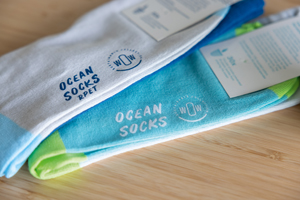
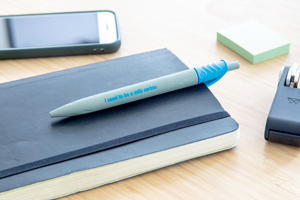
What other sustainability projects is the Plato Group currently promoting?
Ton Löbker: Here, like other industry players this above all affects the products we offer. If we want to be taken seriously by the decision-makers in the marketing departments and in Brussels and if we want a stable future, we have to keep on questioning what we stand for and what we sell. We see this on a day-to-day basis when dealing with the customers – for example in the meantime countless big companies have Compliance Officers, who are firmly integrated into the buying processes. The smaller companies will soon follow suit. Against this backdrop, the growth that we have achieved on the product side as a result of us taking over Interall, is of course a gain in value.
// Till Barth spoke with Ton Löbker.
Photos: Plato Group




